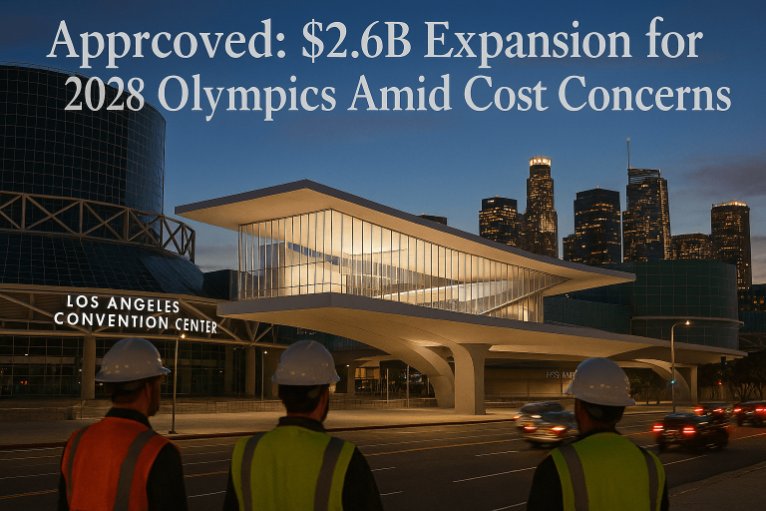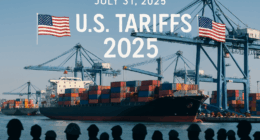A High-Stakes Gamble on L.A.’s Future
In the shadow of a sprawling, sun-baked skyline, Los Angeles’ leaders made a fateful choice—one that blends ambition with anxiety. On September 19, 2025, the City Council voted 11-2 to greenlight a $2.6 billion expansion of the Los Angeles Convention Center, a massive project aimed at revitalizing a pandemic-weary downtown. But as families across the city tighten belts amid rising homelessness and slashed services, this decision feels less like a bold stroke and more like a precarious leap. With the 2028 Olympics looming, the vote evokes the quiet desperation of parents weighing dreams against daily needs: Can L.A. afford to bet big when its safety net is fraying?
Trade-Offs That Hit Home
For Angelenos like Maria Gonzalez, a single mother in South L.A. who relies on city-funded after-school programs for her kids, the expansion’s shadow looms large. Already, the city has cut 1,600 jobs this year, slowing LAPD hires and straining firefighters amid wildfires and heatwaves. Councilmember Nithya Raman’s words cut deep: “What I fear is that we’re going to have a beautiful new Convention Center surrounded by far more homelessness than we have today.” Her vote against the project echoed the anguish of residents facing eviction notices, where $100 million annual drains from the general fund could mean fewer paramedics or shuttered shelters.
Construction workers, however, see a lifeline. Retiree Sydney Berrard, a former sheet metal worker, testified with raw emotion: “The only reason I was able to raise my family, buy a home and retire with security… is because of major projects like this.” Yet for the 13,000 temporary jobs promised, the emotional cost weighs heavy—families disrupted by delayed services, communities divided over priorities. In a city where tourism dollars once flowed freely, the human price of this gamble is a fragile hope clashing with tangible hardship.
A Ballooning Bill and Tight Timeline
The numbers paint a stark picture. The $2.6 billion price tag—revised down $100 million from a recent $2.7 billion peak—still marks a $483 million jump from six months ago. Over 30 years, taxpayers face an average $89 million annual hit, spiking to over $100 million yearly from 2030-2046, per City Administrative Officer Matt Szabo. This siphons funds from essentials: police, fire, and paramedics, amid a budget crisis that eliminated 1,600 positions.
The project adds 325,000 square feet, bridging the South and West Halls over Pico Boulevard—a feat Szabo called “extraordinarily complicated.” Construction kicks off next month with demolition, racing the 2028 Olympics clock for judo and gymnastics events. Delays risk penalties from organizers. City Controller Kenneth Mejia warned it won’t turn profitable until the late 2050s, urging pause amid fiscal woes. Yet benefits gleam: 13,000 construction jobs, 2,150 permanent roles, and boosted tourism revenue from larger events.
| Aspect | Details |
|---|---|
| Total Cost | $2.6 billion (up $483M from Jan 2025) |
| Annual Impact (2030-2046) | $100M+ from general fund |
| Jobs Created | 13,000 construction; 2,150 permanent |
| Space Added | 325,000 sq ft |
| Vote | 11-2 (Opposed: Yaroslavsky, Raman) |
Olympics Dreams vs. Fiscal Reality
This vote caps over a decade of fits-and-starts at City Hall, from hotel proposals to repair-focused alternatives rejected this week. Proponents like Mayor Karen Bass and Councilmember Traci Park frame it as transformative: “We need to bring our city back to life,” Park said, eyeing downtown’s post-pandemic slump. Business leaders like Nella McOsker hail it as a “model that can work,” luring national conventions and visitors.
Critics decry the timing. Councilmember Katy Yaroslavsky, budget chair, blasted it as unaffordable: “If you think city services… suck now… It’s going to get worse.” Amid national cuts threatening housing funds, L.A.’s bet mirrors global Olympic host struggles—think Rio 2016’s “white elephant” venues amid economic fallout. With inflation biting and federal aid uncertain, the expansion risks widening inequality, pitting event glamour against everyday survival in a city of stark divides.
Jobs, Scrutiny, and the Olympic Clock
Demolition starts next month, but hurdles abound: union-backed momentum from leaders like Ernesto Medrano—”Our members are ready to don their hard hats”—clashes with oversight calls. Councilmember Eunisses Hernandez, who flipped to yes, vows to hunt “other people’s money” for services. Potential reforms include revenue tweaks, like digital billboards, but Szabo’s caveat lingers: “Not without future trade-offs.”
For resilience, L.A. draws from past pivots—post-1984 Olympics infrastructure wins. Global lessons from Tokyo 2020’s delayed builds urge adaptive planning: phased funding, community input. As 2028 nears, success hinges on transparency—audits, job training for locals—to turn risk into renewal, ensuring the Games uplift all Angelenos, not just the arena.
Betting on Belief in a Budget-Strained City
The L.A. City Council’s approval of the Convention Center expansion is a defiant act of faith—a $2.6 billion wager on jobs and glory amid cost warnings that chill the spine. As Councilmember Adrin Nazarian urged, “If we’re not here to believe in ourselves, who’s going to?” Yet in a city teetering on fiscal edges, this decision demands vigilant stewardship to shield the vulnerable. May it spark the revival promised, weaving economic promise with compassionate priorities, so L.A.’s light shines for every resident, not just the spotlight.






